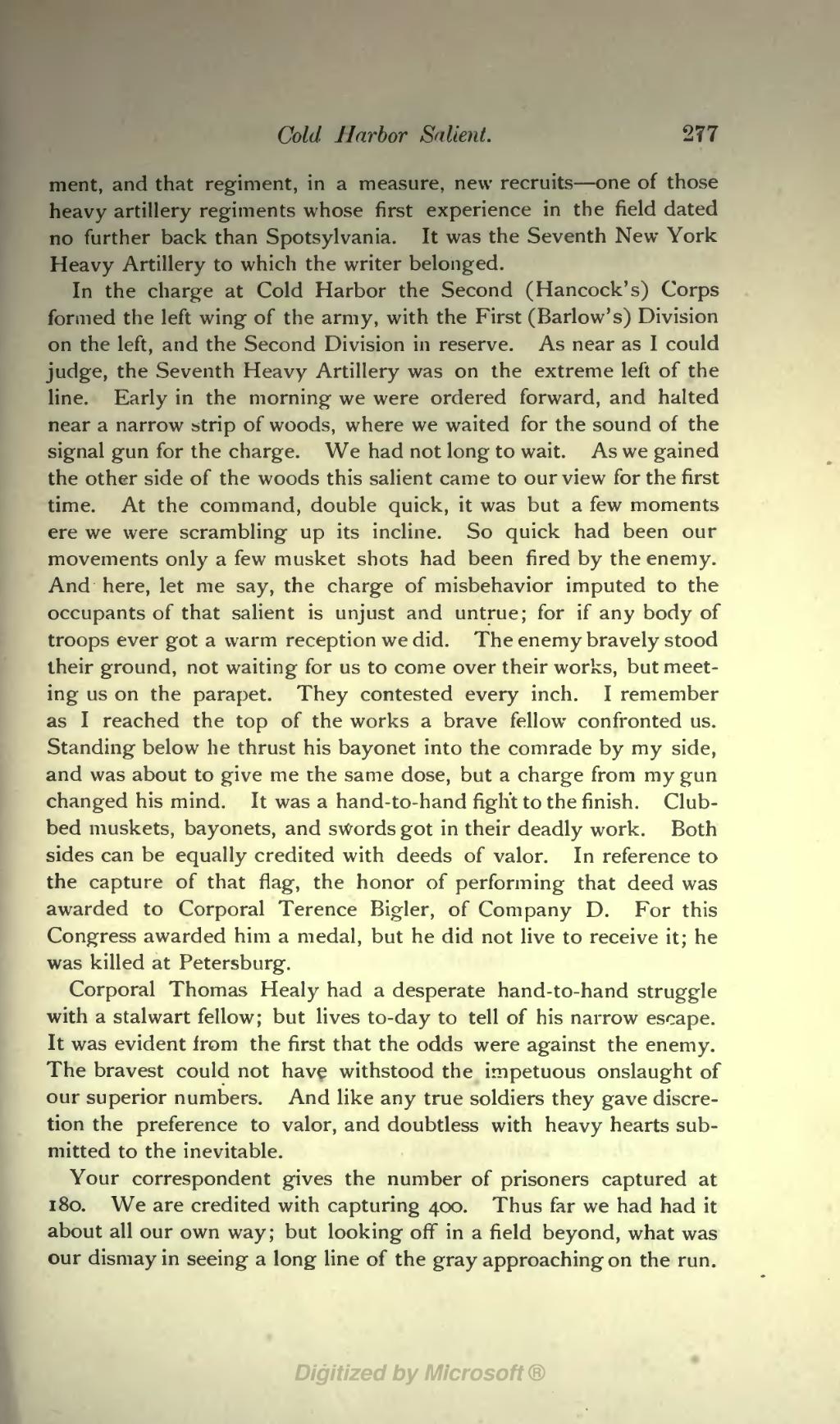Cold Harbor Salient. 2T7
ment, and that regiment, in a measure, new recruits one of those heavy artillery regiments whose first experience in the field dated no further back than Spotsylvania. It was the Seventh New York Heavy Artillery to which the writer belonged.
In the charge at Cold Harbor the Second (Hancock's) Corps formed the left wing of the army, with the First (Barlow's) Division on the left, and the Second Division in reserve. As near as I could judge, the Seventh Heavy Artillery was on the extreme left of the line. Early in the morning we were ordered forward, and halted near a narrow strip of woods, where we waited for the sound of the signal gun for the charge. We had not long to wait. As we gained the other side of the woods this salient came to our view for the first time. At the command, double quick, it was but a few moments ere we were scrambling up its incline. So quick had been our movements only a few musket shots had been fired by the enemy. And here, let me say, the charge of misbehavior imputed to the occupants of that salient is unjust and untrue; for if any body of troops ever got a warm reception we did. The enemy bravely stood their ground, not waiting for us to come over their works, but meet- ing us on the parapet. They contested every inch. I remember as I reached the top of the works a brave fellow confronted us. Standing below he thrust his bayonet into the comrade by my side, and was about to give me the same dose, but a charge from my gun changed his mind. It was a hand-to-hand fight to the finish. Club- bed muskets, bayonets, and swords got in their deadly work. Both sides can be equally credited with deeds of valor. In reference to the capture of that flag, the honor of performing that deed was awarded to Corporal Terence Bigler, of Company D. For this Congress awarded him a medal, but he did not live to receive it; he was killed at Petersburg.
Corporal Thomas Healy had a desperate hand-to-hand struggle with a stalwart fellow; but lives to-day to tell of his narrow escape. It was evident from the first that the odds were against the enemy. The bravest could not have withstood the impetuous onslaught of our superior numbers. And like any true soldiers they gave discre- tion the preference to valor, and doubtless with heavy hearts sub- mitted to the inevitable.
Your correspondent gives the number of prisoners captured at 1 80. We are credited with capturing 400. Thus far we had had it about all our own way; but looking off in a field beyond, what was our dismay in seeing a long line of the gray approaching on the run.
